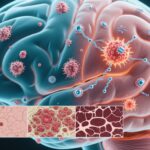Highlights
- ChatGPT-enhanced training leads to superior problem-solving skills among nursing students versus standard education.
- AI-integrated curriculum improves attitudes toward artificial intelligence and increases satisfaction with learning experiences.
- Significant gains in nursing process competency were observed only in the AI-trained group.
- This randomized controlled trial supports integrating conversational AI into health sciences education to foster critical thinking and adaptability.
Study Background and Disease Burden
Nursing education faces mounting challenges in preparing undergraduates for increasingly complex clinical environments. Problem-solving and clinical reasoning are core competencies, yet traditional curricula often struggle to rapidly adapt to new technologies and evolving patient care needs. Artificial intelligence (AI) tools like ChatGPT, capable of simulating patient interactions and providing tailored feedback, offer a promising avenue for enhancing educational outcomes. Despite growing enthusiasm, robust evidence supporting AI’s practical integration in nursing training remains limited. This study addresses the knowledge gap by rigorously evaluating how ChatGPT-facilitated training impacts critical learning metrics among nursing students.
Study Design
This single-blind, randomized controlled trial enrolled 96 undergraduate nursing students from a university program, equally allocated to intervention (n=48) and control (n=48) groups. The intervention group participated in an “Artificial Intelligence Integrated Nursing Process” education program, using ChatGPT to support case analysis, clinical reasoning exercises, and simulated patient care scenarios. The control group received the standard nursing process curriculum without AI integration. Key outcome measures—problem-solving skills (problem-solving inventory), attitudes toward AI, nursing process competencies, and satisfaction—were assessed using validated instruments before and after the intervention. Chi-square tests compared categorical variables, while independent and paired t-tests evaluated between- and within-group differences.
Key Findings
The trial yielded several statistically and clinically significant outcomes:
- Problem-Solving Skills: Post-intervention, the experimental group achieved a significantly lower mean problem-solving inventory score compared to controls, indicating enhanced problem-solving ability (p<0.05). This suggests that ChatGPT’s interactive problem-based learning format fosters deeper analytic thinking and application of theoretical knowledge.
- Attitudes Toward Artificial Intelligence: Students trained with ChatGPT demonstrated increased positive attitudes and reduced negative perceptions of AI versus the control group (p<0.05). Exposure to practical AI applications may demystify the technology, promoting open-mindedness and future readiness.
- Nursing Process Competency: The intervention group exhibited a significant increase in nursing process competency scores following the AI-integrated program, whereas no change was observed in controls. This reflects improved ability to assess, diagnose, plan, implement, and evaluate nursing care—core to safe and effective practice.
- Satisfaction Levels: Learner satisfaction rose significantly post-training in the experimental group but remained unchanged in controls. Enhanced engagement and perceived utility of AI-driven instruction likely account for this difference.
Notably, no adverse outcomes or increased stress related to AI exposure were reported, supporting the approach’s acceptability and safety in the academic setting.
Expert Commentary
The findings from Arkan et al. contribute important evidence to the growing discourse on AI in health sciences education. As healthcare delivery becomes more technologically intertwined, preparing students to harness digital tools is no longer optional but essential. The observed gains in problem-solving and process competency align with broader educational theories supporting active, technology-enhanced learning. However, the study’s modest sample size and single-center design may limit generalizability. Future research should explore long-term retention, real-world clinical performance, and the impact of AI on other domains such as ethical reasoning and teamwork.
Current guidelines from organizations such as the International Council of Nurses emphasize the need for digital literacy and informatics as core nursing competencies. This study provides actionable data supporting policy shifts toward incorporating AI-driven modules in nursing curricula globally.
Conclusion
Integrating ChatGPT into the nursing education framework demonstrably enhances problem-solving, attitudes toward AI, nursing process competency, and student satisfaction. As healthcare systems increasingly rely on intelligent technologies, embedding AI literacy and practical skills into foundational training will be vital for preparing the next generation of clinicians. Further multicenter studies and long-term follow-up are warranted to validate these promising results and optimize curriculum design.
References
1. Arkan B, Dallı ÖE, Varol B. The impact of ChatGPT training in the nursing process on nursing students’ problem-solving skills, attitudes towards artificial intelligence, competency, and satisfaction levels: Single-blind randomized controlled study. Nurse Educ Today. 2025 Sep;152:106765. doi: 10.1016/j.nedt.2025.106765. Epub 2025 May 3. PMID: 40334550.
2. International Council of Nurses. Guidelines on Nursing Education and Digital Health. Geneva: ICN; 2023.


